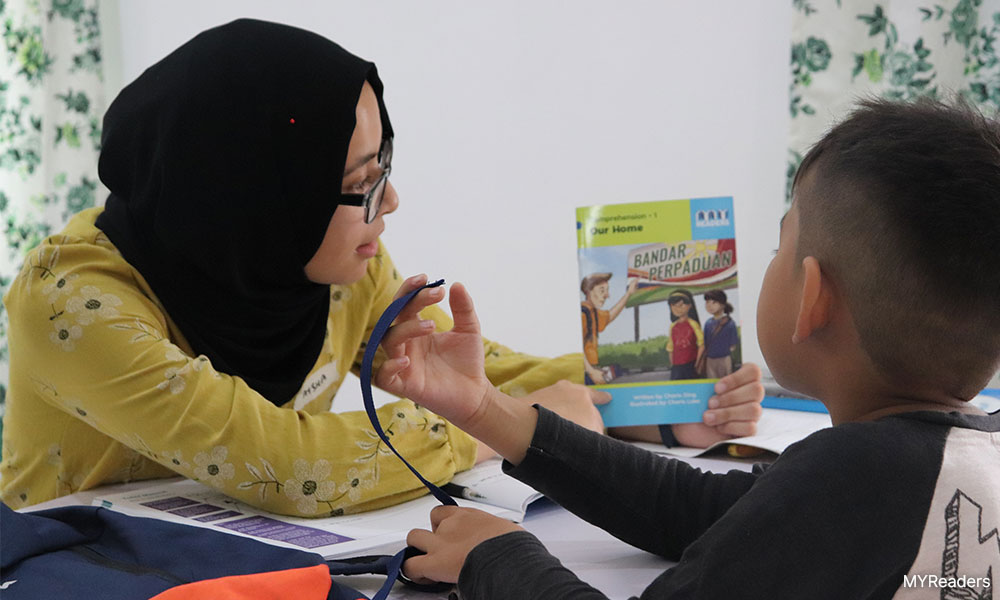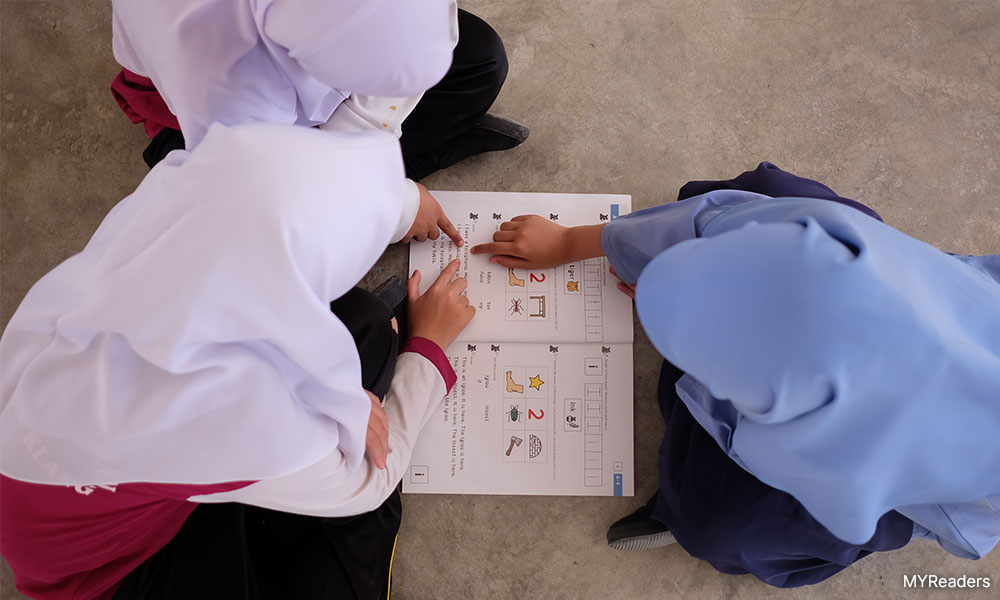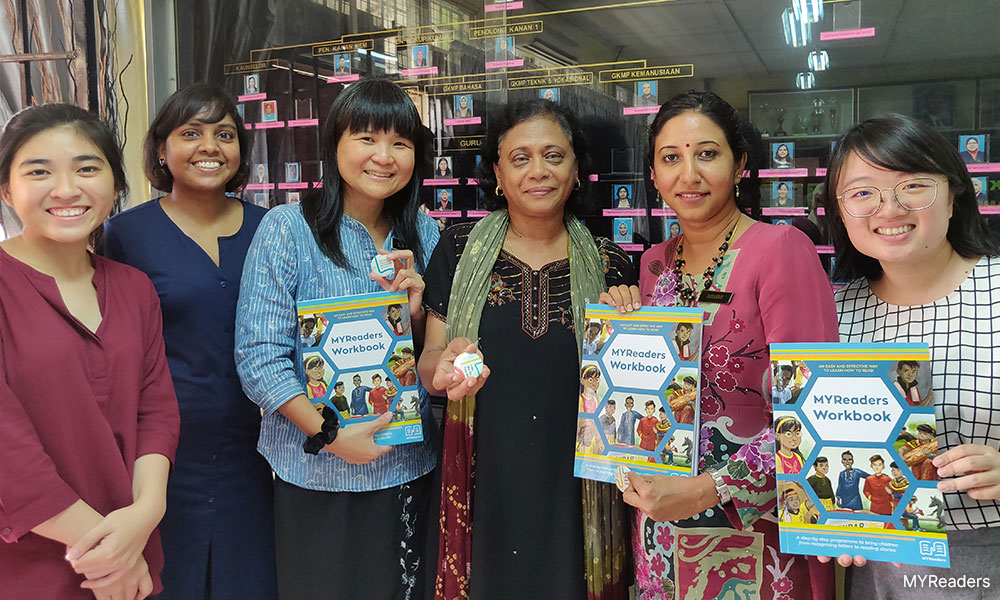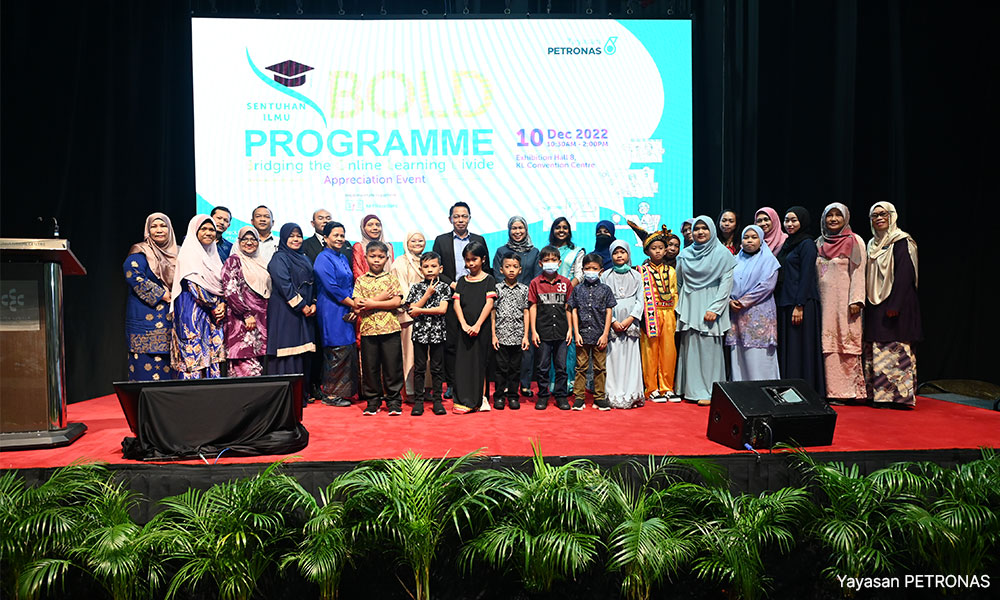.MALAYSIANSKINI | Despite growing up in a lower-middle-income family that is rarely presented with the opportunity to pursue tertiary education, 34-year-old Rachael Shalini Francis believes that the ability to read is every child’s right.
When Rachael (above) volunteered as a teacher for a literacy programme to teach basic literacy and numeracy to remove class students, she encountered illiteracy for the first time.
Having the passion to spread knowledge, Rachael studied to get a degree in the English language, after which she began her journey as an English remedial teacher at an international school, before she went on to teach at a rural school for three years under the Teach For Malaysia Fellowship.
By the end of 2016, it became Rachael’s mission to reach out to more underserved students and she began working with numerous schools around the nation by designing and implementing various transformation programmes.
She discovered that illiteracy is even present among students in secondary school, as they had difficulty trying to read basic English phrases and sentences.
The issue of illiteracy is not a problem only faced by lower-income families. Reading difficulties like dyslexia could pose a challenge to children, regardless of the income group or community they originated from.
Many blame the education system when stories that students in secondary school can barely read and write start circulating.
However, factors like a child’s first language, enrolment in pre-school, home literacy practices, having books at home and being able to complete schooling play a significant role in them attaining literacy. Most of these are things a child has no control over.
As we enter the annual International Literacy Day (ILD), we should remind ourselves of the importance of literacy as a matter of dignity and human rights.

“In reality, many communities are affected by illiteracy. Being literate is a result of privilege and opportunities and chances are they were dealt the right cards in life,” Rachael said.
She also pointed out that it can be convenient to blame one entity, but that’s unfair because the education system is a large and complex machinery. Many factors should be considered.
Income gap a key factor
“In Malaysia, enrolment in preschool is not mandatory. Research shows that children from low-income households are found to be almost a year behind their middle-class peers by the time they start school, which means the learning gap exists from the moment a child sets foot in school.
“Meanwhile, most children from middle and higher-income families have some basic foundational skills when they enrol in school due to parental awareness and access to resources,” Rachael explained.
“When students can’t read, it affects their whole life. Once they are behind in reading, it is not possible for a student to just ‘catch up’,” she added.
Intervention in small groups or one-on-one is needed to enable them to close the reading gap and pursue equal learning opportunities like their literate peers.
However, Rachael said, there are insufficient resources to address all learners in school, which is why we end up seeing students progressing year after year despite not reading at the right levels.
“We should work together with low-income communities to empower parents as educators and provide access to resources so that children access literacy support earlier in life to bridge this gap,” she opined.
In Malaysia, there are organisations such as MYReaders that aim to empower children by providing a structured and sustainable reading programme, leveraging localised reading materials illustrated by Malaysian students and teachers.
Established in 2014, MYReaders primarily focuses their efforts on serving lower-income and underserved communities, including refugees and stateless children, with a vision of “one day, every child will be able to read”.
Having joined the organisation in 2019, Rachael found solace in MYReaders’ vision that aligns with her own aspiration of improving the quality of life for marginalised communities.

Reading, a right for all
“We are experienced at working with institutions and individuals in setting up community-owned literacy solutions. Through our programmes, we have demonstrated that contextualised interventions with local ownership are most effective in achieving longer-term results,” Rachael, who is now also the CEO of MYReaders, said.
According to her, the phonics-based MYReaders Literacy Toolkit is developed based on the science of reading, with visuals that reflect the richness of Malaysian culture and local customs.
Consisting of workbooks, decodable storybooks and comprehension, it has been tested and proven to work with Malaysian students.
To date, MyReaders has impacted over 34,216 B40 students from 136 schools and 47 communities. They have also enlisted 850 teachers, 1,695 parents and 1,800 volunteers to be a part of literacy initiatives.
As for literacy programmes for adults, MYReaders has a new project: Literacy For All, to which it is currently in search of eight Alternative Learning Centres that cater to refugees, migrants, or stateless children to start fully-funded literacy programmes for both adults and children.
While MYReaders only concentrated on English at the start, it is recently exploring more Bahasa Malaysia resource development. In 2021, they implemented a bilingual early literacy intervention programme for Orang Asli children called Raising Readers.

“Through the project, we developed materials to support children with basic phonemic skills - identifying the sounds of the alphabet as a foundation for reading words and building up a word bank of English and Malay words.
"Since they spoke Bahasa Malaysia as a second language and were unfamiliar with English, this approach made the most sense,” Rachael said.
MYReaders also developed home literacy activity packs called Aspiration Starts At Home (Asah) to support parents, entailing a range of activity packs covering various themes such as self, community, food, and feelings, with each pack containing bilingual vocabulary lists, guides, and hands-on activities.
As an educator, Rachael believes that literacy can lead to building a better society.
“We believe that literacy enables a person to exercise self-agency and meaningfully participate in society, which is important to ensure a better quality of life.
“On an individual level, illiteracy holds people back from being able to pursue studies, secure jobs, vote, know and fight for their rights and can cause intergenerational poverty," she said.
“The fact is, illiteracy affects all of us because it not only sets our workforce back but our nation as a whole is affected when segments of our society do not have good access to information and awareness.
“To quote Barack Obama, ‘Literacy is the most basic currency of the knowledge economy we are living in today’,” she added.

Rachael notes that more needs to be done to address illiteracy and most people are not aware that it is a huge problem in our country.
“We hope that shedding light on the complexity of the issue inspires more people to join us in our pursuit of a better society,” Rachael ended.
More information about MYReaders programmes and resources can be found on their website. - Mkini
MALAYSIANSKINI is a series on Malaysians you should know.




No comments:
Post a Comment
Note: Only a member of this blog may post a comment.